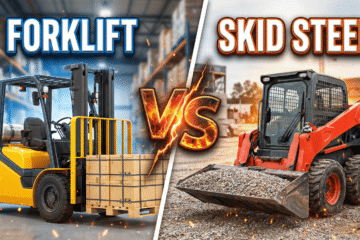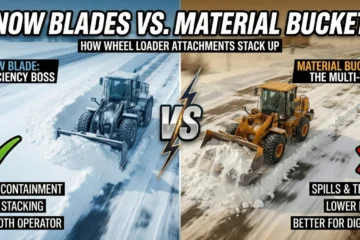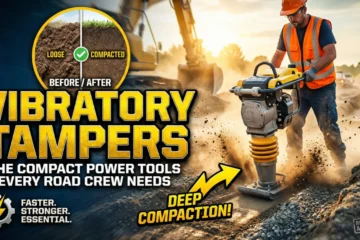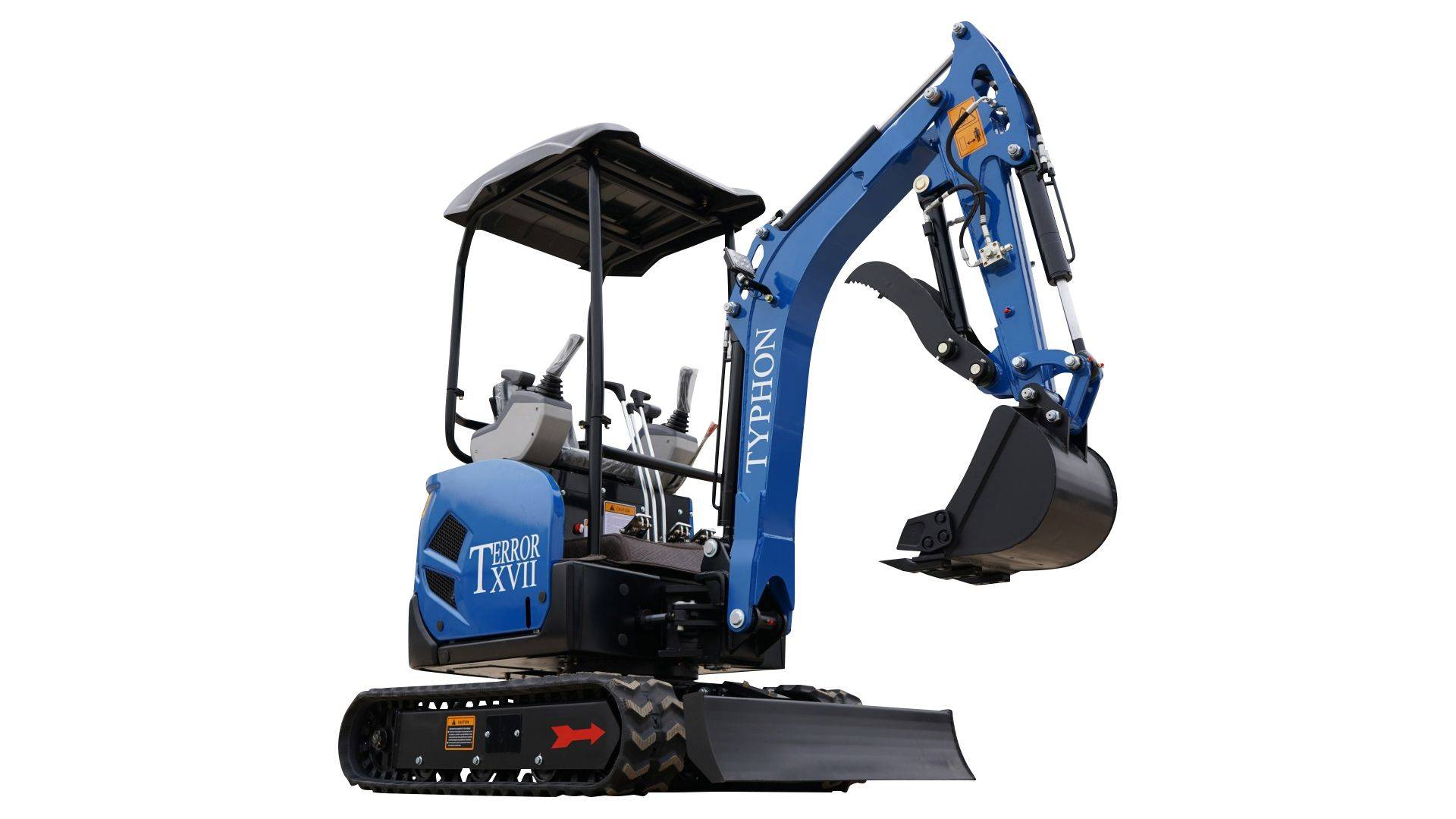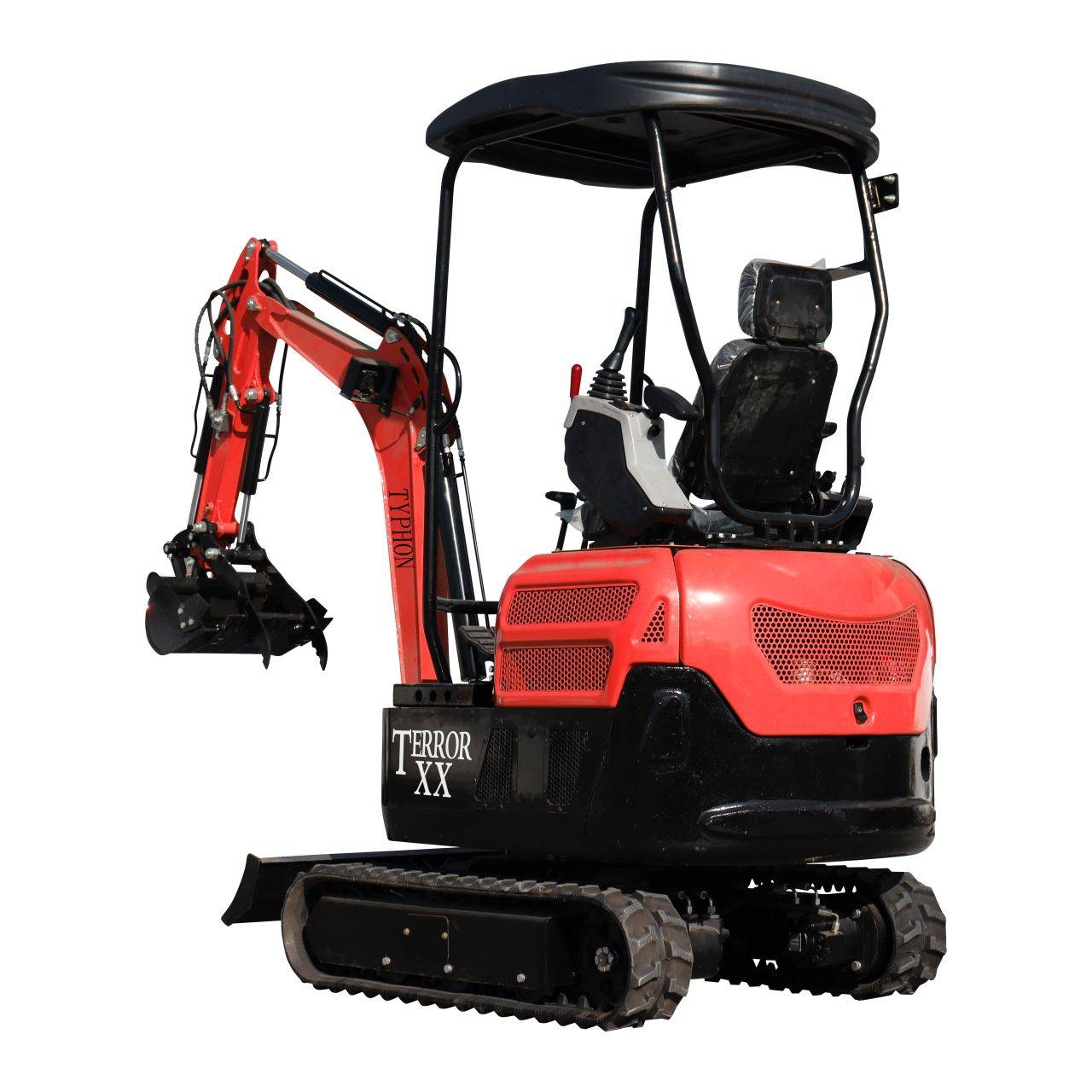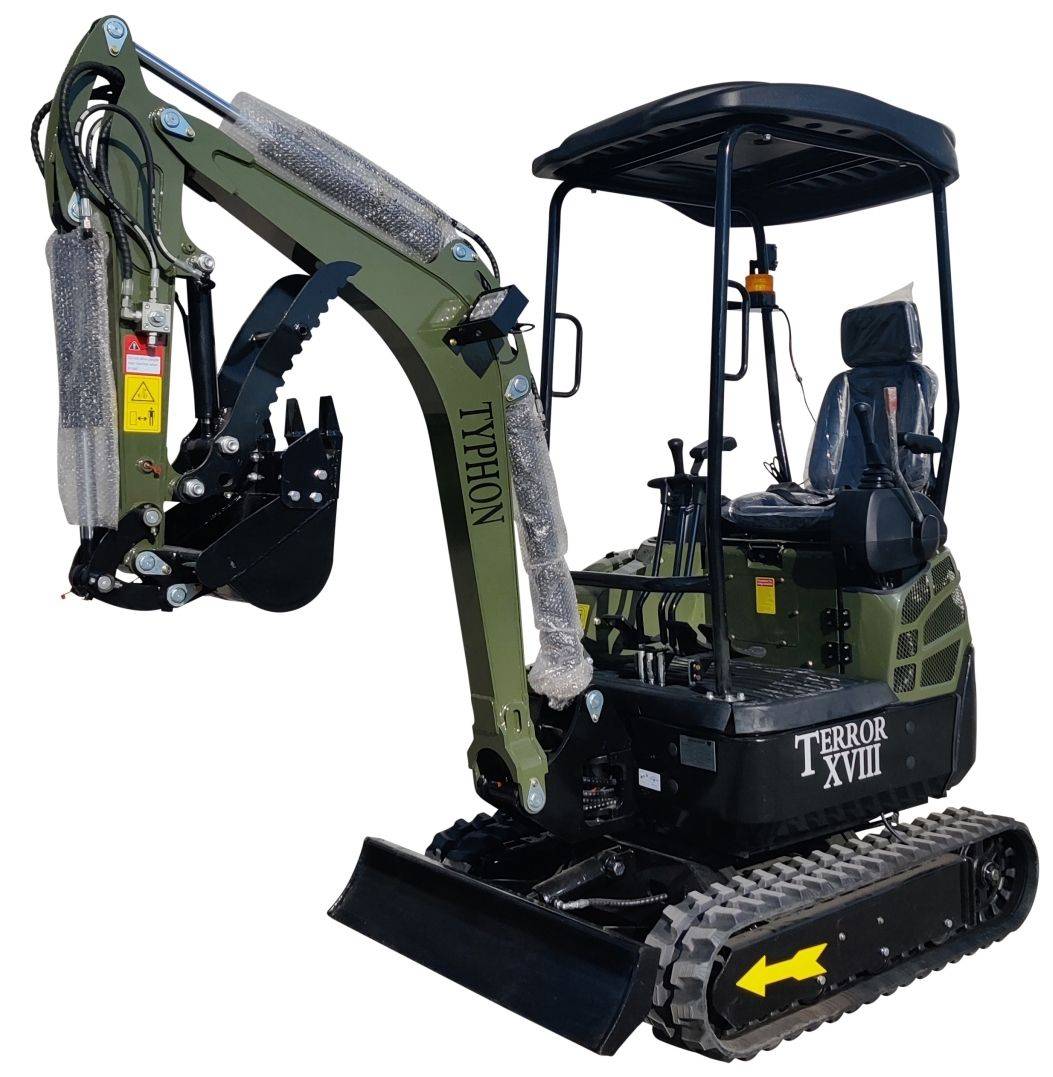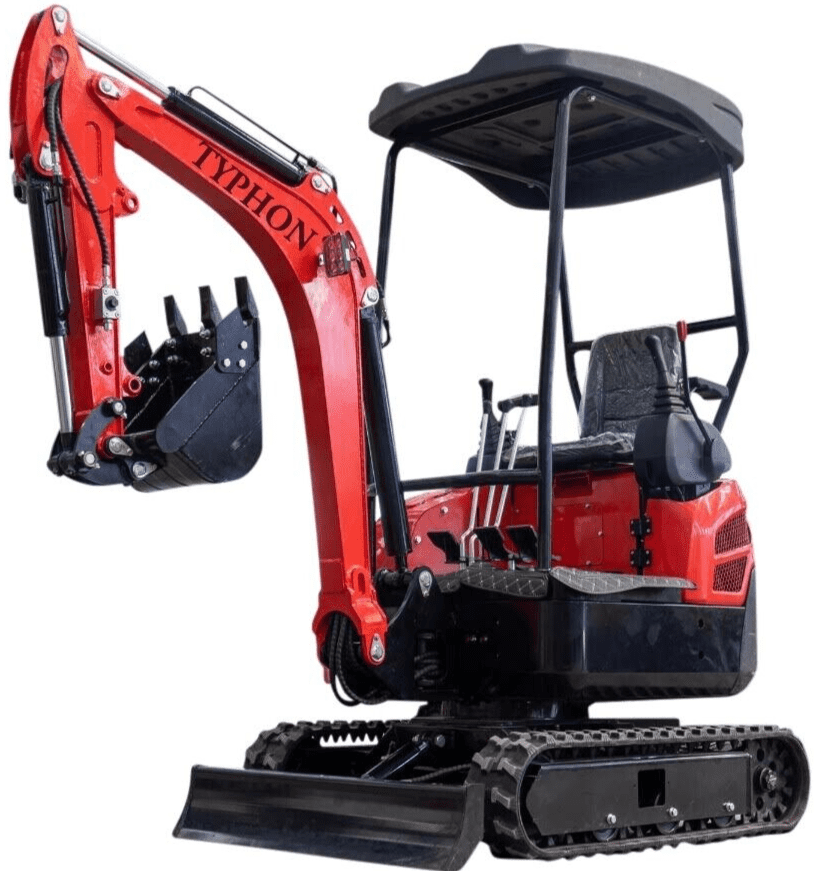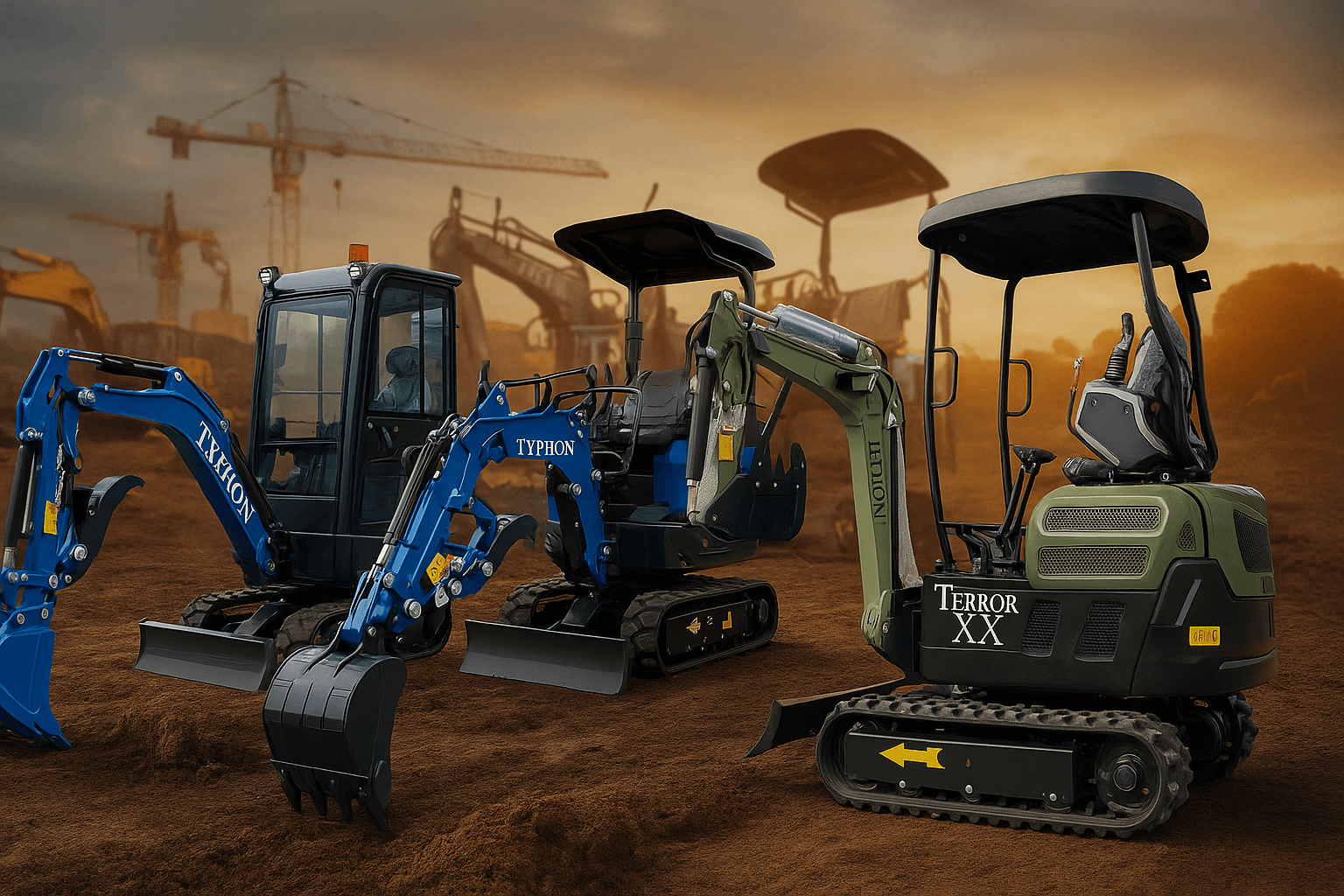
Compact Excavators: The Essential Guide to Versatile Heavy Equipment
Compact excavators, also known as mini excavators, have revolutionized the construction, landscaping, and agriculture industries by offering powerful digging capabilities in a smaller, more maneuverable package.
This guide covers everything about compact excavators, including their benefits, key features, popular applications, maintenance tips, and how they compare to larger equipment. Whether you are a contractor, landscaper, farmer, or rental business, understanding compact excavators will help you make informed decisions to optimize your operations.
What Are Compact Excavators?
Compact excavators are smaller versions of standard excavators, usually weighing less than 10,000 lbs (4.5 tons). They feature a hydraulically operated boom, dipper arm, bucket, and rotating cab mounted on tracks or wheels. Despite their smaller footprint, they deliver impressive digging power, precision, and versatility for a wide range of tasks. These machines typically range from 1 to 6 tons and are designed to access confined spaces where larger excavators cannot reach.
Benefits of Using Compact Excavators
Exceptional Maneuverability
One of the biggest advantages of compact excavators is their ability to operate in tight spaces such as urban construction sites, residential yards, or indoor renovations. Their small size and reduced swing radius allow for precise movements without compromising on job performance.
Versatility with Attachments
Compact excavators support a wide array of attachments including digging buckets, augers, breakers, grapples, and trenchers. This adaptability enables them to perform multiple tasks like excavation, demolition, landscaping, and material handling, reducing the need for additional machinery onsite.
Lower Operating Costs
These machines consume less fuel and require less maintenance compared to larger excavators, leading to significant cost savings over time. Their smaller size also means reduced transportation expenses and easier compliance with local regulations regarding machinery operation.
Increased Productivity on Small to Medium Projects
Compact excavators provide optimal power and efficiency for small to medium jobs where larger equipment would be impractical or cause disruption. This makes them invaluable for contractors and businesses specializing in residential, landscaping, or agricultural projects.
Key Features of Modern Compact Excavators
Engine Performance and Efficiency
Most compact excavators are powered by reliable diesel engines such as Kubota, Yanmar, or Perkins models, offering horsepower between 10 and 50 HP depending on the size. Advanced features like turbocharging, water cooling, and electronic fuel injection help improve fuel efficiency and reduce emissions.
Hydraulic Systems
Modern compact excavators feature advanced hydraulic controls with proportional flow that provides operators precise control over boom, stick, and attachment movements. This improves operational accuracy and reduces fatigue, especially during delicate tasks.
Operator Comfort and Safety
Cabins or canopy designs on compact excavators include ergonomic seats, adjustable controls, optimized visibility, and climate control (in enclosed cabins). Safety features such as rollover protection, emergency stop switches, and backup alarms enhance secure operation in busy job sites.
Compact Dimensions
These machines typically have a minimal tail swing or zero tail swing design, allowing operators to work closer to walls, fences, and other obstacles without risk of damage. Their track widths and transport dimensions cater to easy loading onto trailers and trucks.
Popular Applications of Compact Excavators
Construction and Utility Work
From digging foundations, trenches, and footings to site preparation and utility installation, compact excavators handle various construction needs. Their ability to work in urban or restricted environments makes them preferable for sewer and water line repairs or new builds.
Landscaping and Groundskeeping
Landscapers utilize compact excavators for grading, tree planting, digging ponds, and debris removal. Their precision and maneuverability allow for delicate earthworks and minimal damage to existing landscapes.
Agriculture and Farming
Farmers use compact excavators for fence post hole digging, clearing land, irrigation ditch creation, and moving materials. The machines’ compact nature suits operations involving limited space or sensitive terrains.
Demolition and Renovations
Compact excavators fitted with hydraulic breakers or grapples can perform small-scale demolition on structures, pavements, or concrete surfaces. Their size allows indoor work or close-quarter demolition tasks that larger equipment cannot handle.
Rental Equipment Services
Rental companies stock compact excavators for their versatility and appeal to a wide range of customers from DIY homeowners to professional contractors, making them a high-turnover asset.
Choosing the Right Compact Excavator
Size and Weight Considerations
Choose a machine size that matches your working conditions and transport capabilities. Smaller compact excavators (1-3 tons) excel at tight areas, while larger models (4-6 tons) provide more power for intensive digging or heavier attachments.
Engine Power and Fuel Economy
Evaluate engine horsepower based on the nature of your projects. Higher horsepower often means better digging force, but also higher fuel consumption. Look for engines with modern fuel-saving technologies.
Hydraulic Flow and Attachment Compatibility
Ensure the excavator’s hydraulic system supports your intended attachments and desired operating speed. Higher flow rates and auxiliary circuits enable greater attachment versatility.
Operator Environment and Controls
Consider operator comfort especially for long work hours. Features like adjustable seats, easy-to-use joysticks, and climate control cabins enhance productivity and safety.
Maintenance Tips for Compact Excavators
Daily Inspections
Check fluid levels, track tension, hydraulic hoses, and clean air filters. Address any leaks or wear before operation.
Routine Servicing
Follow manufacturer guidelines for oil changes, filter replacements, and greasing pivot points, typically every 250 hours.
Monitor and Replace Wear Parts
Watch for track wear, bucket teeth condition, and hydraulic seals to plan timely replacements and avoid downtime.
Proper Storage and Winterizing
Store machines in sheltered areas and prepare for cold weather by using appropriate lubricants and antifreeze.
Market Trends and Innovations in Compact Excavators
Electrification and Hybrid Models
The industry is steadily moving towards electric and hybrid compact excavators to reduce emissions, noise, and running costs, especially for indoor and urban applications.
Telematics and Connectivity
Modern compact excavators come equipped with telematics systems providing real-time monitoring, GPS tracking, and preventive maintenance alerts, helping reduce downtime and optimize fleet operations.
Enhanced Safety Features
Advanced operator assistance technologies like cameras, sensors, and automatic shutdowns are becoming standard to reduce accidents and improve site safety.
How to Choose the Best Compact Excavator for Your Needs
Selecting the right compact excavator requires a careful assessment of your project requirements, job site conditions, and budget constraints. Here are key factors to consider that will guide your purchase decision:
Assess Job Site Conditions and Space Constraints
Evaluate the size and terrain of your work area. If working in extremely tight spots, a zero or minimal tail swing compact excavator may be essential to prevent accidental damage or downtime. For uneven or soft ground, machines with rubber tracks and high ground clearance offer better stability and reduced surface impact.
Match Machine Size to Project Scope
If your projects mostly involve light digging, landscaping, or small trenching, a smaller compact excavator in the 1 to 3-ton range might be sufficient. For more intensive applications like demolition, larger landscaping jobs, or heavy material handling, models up to 6 tons with higher horsepower would be better suited.
Prioritize Attachment Versatility
Confirm that the excavator supports a variety of attachments needed for your operations, such as buckets of multiple sizes, hydraulic breakers, augers, and grapples. This flexibility significantly enhances your machine’s functionality and return on investment.
Consider Operator Comfort and Features
Since operators spend extended hours on the equipment, ergonomic design, visibility, noise reduction, and cabin climate control can improve productivity and reduce fatigue and errors. Advanced control systems with joystick operation and touchscreen interfaces are added advantages.
Financial Considerations: Buying vs. Renting Compact Excavators
Buying Benefits
- Long-term Cost Savings: Ownership eliminates recurring rental fees and provides asset value.
- Customization: Allows purchase of machines tailored to specific job needs with preferred attachments.
- Availability: Immediate access without rental scheduling conflicts.
Renting Advantages
- Lower Upfront Cost: Avoids heavy capital investment, freeing cash flow.
- Flexibility: Rent different sizes or models for varying projects.
- Maintenance & Service: Rental company handles repairs and servicing.
Deciding between buying or renting depends on factors like project duration, frequency of use, and available capital.
How to Maximize the Lifespan of Your Compact Excavator
Proper usage and maintenance extend the operational life of your compact excavator. Here are expert tips:
- Operate within Specified Limits: Avoid overloading or operating on excessively steep slopes.
- Regular Lubrication: Use the correct grease and oil types recommended by manufacturers.
- Track and Tire Care: Maintain proper track tension or tire pressure to prevent premature wear.
- Clean Equipment After Use: Remove dirt and debris that can cause corrosion or hydraulic line damage.
Following these practices protects your investment and ensures high resale value.
Environmental Impact and Sustainability of Compact Excavators
With growing emphasis on green construction practices, compact excavators are increasingly designed to reduce environmental footprints. Features that support sustainability include:
- Low-Emission Engines: Compliance with Tier 4 or Euro Stage V emissions standards reduces harmful pollutants.
- Electric and Hybrid Models: Emerging battery-electric mini excavators produce zero emissions and ultra-low noise, ideal for indoor or noise-restricted environments.
- Fuel Efficiency: Advanced engine management and hydraulic systems optimize fuel use under varying loads.
- Recyclable Materials: Use of recyclable steel and waste-reducing manufacturing techniques in equipment production.
By incorporating eco-friendly excavators into fleets, businesses contribute to cleaner job sites and regulatory compliance while benefiting from operating cost savings.
Top Brands in the Compact Excavator Market
While Typhon Machinery is rapidly gaining popularity with models like the Terror X and Terror XVIII, several established brands dominate the compact excavator space, including:
- Kubota: Renowned for reliable engines and durable construction equipment.
- Bobcat: Offers a wide range of compact excavators with advanced hydraulics.
- Takeuchi: Pioneer in mini excavators, focusing on innovation and operator comfort.
- CAT: Known for robust industrial machines with excellent service networks.
Choosing among these brands depends on specific needs, regional dealer presence, and budget constraints.
Frequently Asked Questions (FAQs) about Compact Excavators
What is the average operating weight of a compact excavator?
Compact excavators typically range from 1 to 6 tons, with 2-4 tons being the most common for general construction and landscaping tasks.
What applications are best suited for compact excavators?
Ideal applications include trenching, digging foundations, landscaping, small demolitions, agricultural work, and utility repairs in confined or sensitive areas.
How often should compact excavators be serviced?
Routine maintenance every 250 hours is recommended, with daily inspections for fluids and critical components to prevent downtime.
Are compact excavators easy to transport?
Yes, their compact size allows easy transport on lightweight trailers without special permits, making them highly mobile between job sites.
Compact Excavators Drive Efficiency Across Industries
Compact excavators deliver unmatched versatility, efficiency, and cost-effectiveness across a wide range of industries. Their ability to perform complex tasks in tight spaces with reduced operating costs has made them indispensable for modern contractors, landscapers, farmers, and rental companies.
With continuous technological advancements, including hybrid and electric powertrains, compact excavators will continue to evolve as sustainable, productive tools that meet the exacting demands of today’s job sites. By selecting the right machine tailored to project needs and adhering to recommended maintenance practices, businesses can maximize their investment and enhance profitability.
Why Compact Excavators Are a Must-Have for Today’s Job Sites
Compact excavators serve as indispensable tools across industries due to their unique blend of agility, power, and versatility. Whether addressing the challenges of tight urban construction, detailed landscaping, or efficient farm work, these machines deliver unmatched performance while minimizing operational costs and environmental impact.
By investing in the right compact excavator tailored to specific needs, professionals can drastically improve project efficiency and profitability. As innovations continue, compact excavators will only grow more capable, intelligent, and essential to the future of heavy equipment.

